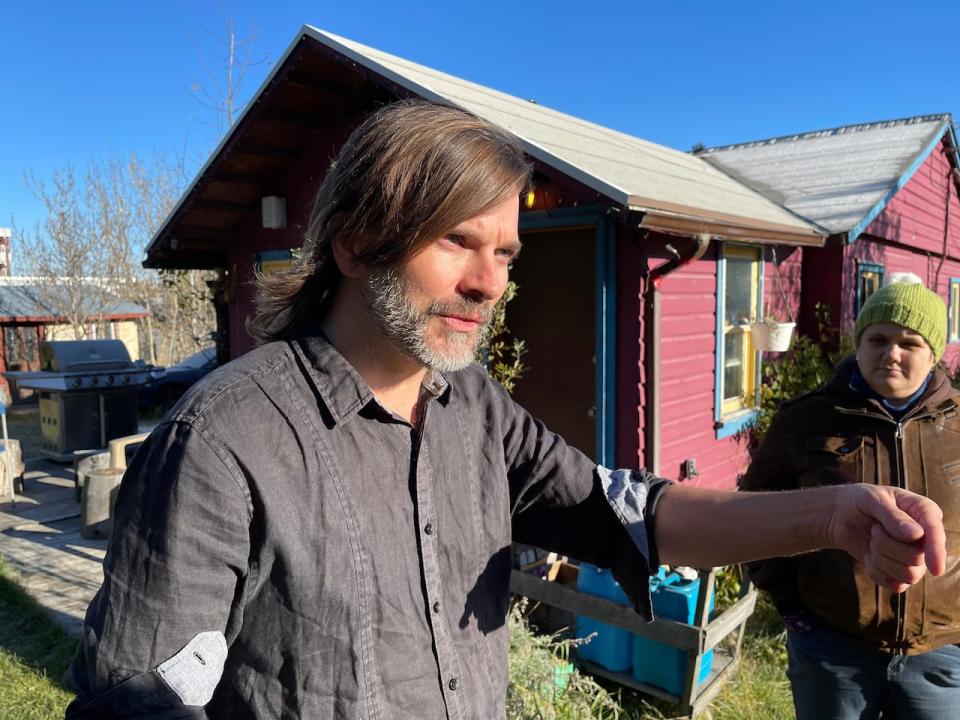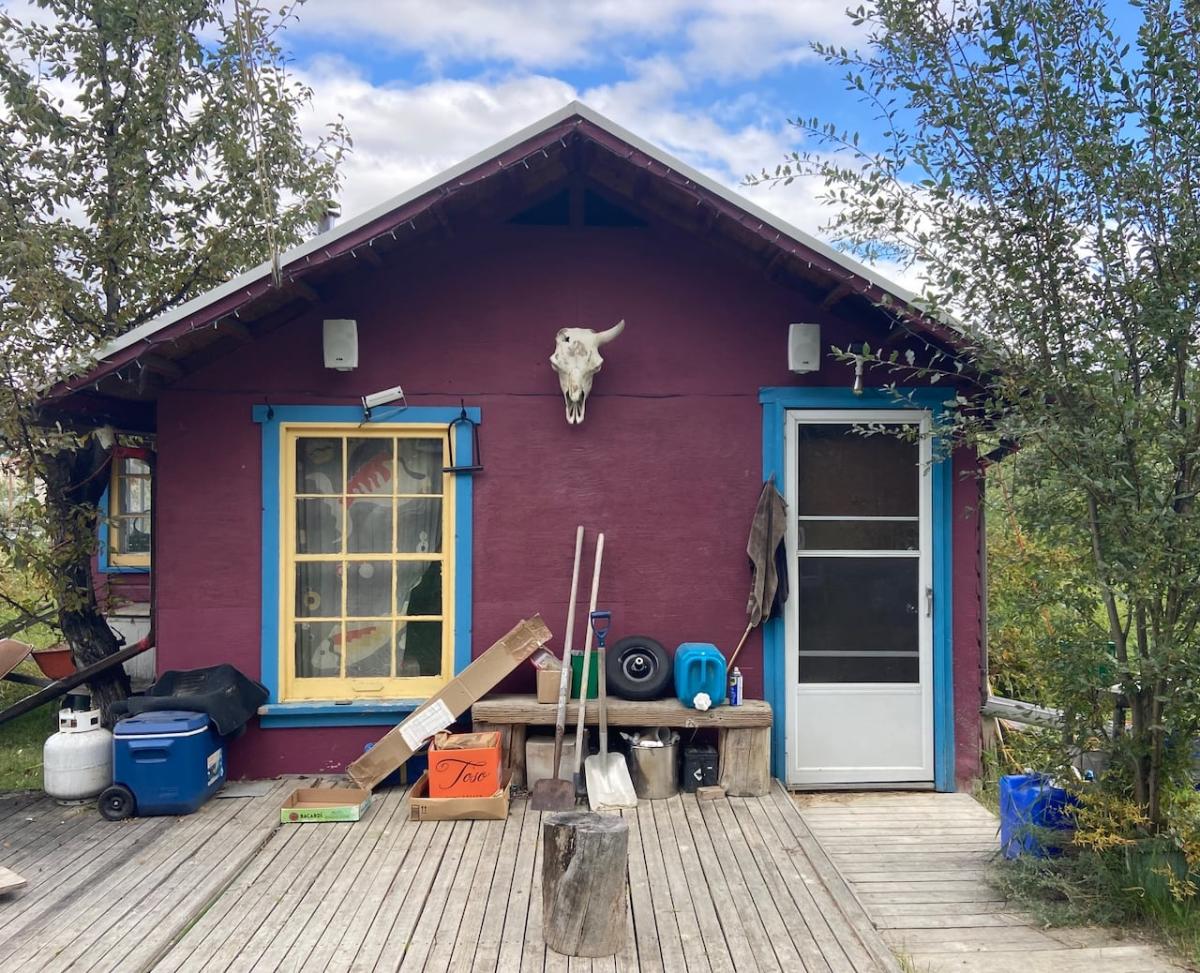The Yukon Supreme Court has ordered the owner of the “purple cabin” in downtown Whitehorse to vacate the cabin’s property within 90 days, ending a three-year legal battle with the Yukon government.
On Wednesday, Justice Karen Wenckebach concluded that the Yukon government had title to the land the cabin sits on and that tenant Len Tarka’s lease had in fact ended in September 2021.
Tarka currently lives in B.C. and sub-rents the property to Eric DeLong, who has been living in the well-known cabin on Sixth Avenue and Lambert Street for seven years. Now, Tarka and DeLong have until Dec. 3 to vacate the property and remove all of their belongings.
“There was always going to be a plan B, and that’s to move on from the place,” DeLong said. “Regardless of whether the decision was in my favour or not, I felt like my time there had been well spent, but it was going to be time to move on and pass the torch.”
In 2021, the Yukon government sued Tarka and DeLong after they refused to vacate the property. Tarka had been renting the property from the government for $100 per day for a term of “30 years, or the life of the Lessee” since Oct. 1, 1991.
The territory argued that Tarka’s lease was for a maximum of 30 years and that he should have vacated the property on Sept. 30, 2021. Tarka refused, claiming that it was his understanding that the property was his to rent for life.

Eric DeLong standing outside what’s known as the “purple cabin” in Whitehorse in 2021. DeLong has lived in the cabin for the past seven years. Now, he has 90 days to vacate the property. ( Wayne Vallevand/CBC)
Government was “careless”
Vincent LaRochelle, the lawyer who represented Tarka and DeLong, said his clients were “very much disappointed by the result.” In particular, they took issue with the judge’s interpretation of the term “life estate lease.”
When he signed the lease, Tarka’s interpretation of “30 years, or the life of the Lessee” led him to believe that he would have a life estate lease. That would allow him to remain on the property until his death, at which time the rights of the land would have been returned to the Yukon government.
The territory argued that Tarka could only rent the property for a maximum of 30 years, as outlined in the territory’s squatter policy, under which Tarka applied for his lease in the ’80s.
In 1988, Tarka received a letter from the then-minister of Community and Transportation Services saying he was eligible for a life estate lease.
“When someone is told that they will receive a life estate lease, they can reasonably understand that they will be allowed to stay for their entire life on the premises,” LaRochelle said.
Justice Wenckebach said the government was “careless” when it used the phrase “life estate lease,” but nonetheless concluded that the letter was not a contract and the cabin was not Tarka’s to rent for life — only for a maximum of 30 years, as per the lease he signed.
Tarka has been ordered to pay $23.17 in rent per day to the Yukon government, amounting to nearly $25, 000, for each day he has not vacated the property since the end of the 30-year lease. Wenckebach’s decision stated that Tarka benefited from the low rent he paid for the land and that he has been renting the property out since 1997 when he left the territory.
LaRochelle said his clients have not yet decided if they will appeal the decision.
Though he plans to vacate the property, DeLong is still advocating for the cabin, in the hope that the building will not be torn down.
“It’s a little purple house frozen in time … I see it as sort of a public resource, it’s an historic cabin,” he said. “The option of tearing it down is on the horizon if we don’t do something together about the place.”

